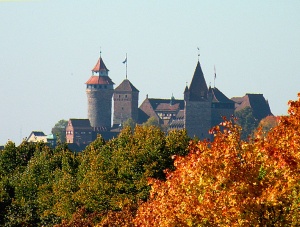Germany sees 80 million overnight stays in 2016

Germany registered more than 80 million overnight stays by international visitors for the first time in 2016.
This is the seventh consecutive record result for the destination.
From January to December the German Federal Statistical Office recorded 80.8 million international overnight stays in accommodation establishments with a minimum of ten beds – an increase of 1.1 million compared to the previous year.
This constitutes a 1.4 per cent rise in the volume of German incoming tourism compared to 2015.
Iris Gleicke, German federal government commissioner for tourism, explained: “Destination Germany is enjoying continued popularity with international visitors.
ADVERTISEMENT
“We have achieved record highs for incoming tourism for the seventh year in a row, which reflects the strength of our tourism industry.”
In the year 2016 Europe remained the largest source region for Germany’s incoming tourism, with a market share of 73.7 per cent and a 1.9 per cent increase, continuing to stimulate strong growth.
With a reduction of 1.1 per cent, Asia is a little below the prior year comparative figure, while America recorded a slight increase of 1.2 per cent.
Six of the ten most important European source markets bolstered Germany’s incoming tourism numbers in 2016 with higher than average growth rates.
Switzerland generated an increase of 3.3 per cent and Austria was 2.0 per cent above the comparison values for the previous year.
At 4.5 to 5.7 per cent, France, Belgium, Spain and Poland experienced especially strong growth.
The Netherlands, as the most important incoming market, was slightly above the prior year result with an increase of 0.7 per cent; Great Britain achieved a rise of one per cent, following the Brexit vote.
The United States, as the largest source market abroad, came in 2.5 per cent higher for incoming tourism in Germany than the previous year.
Petra Hedorfer, chief executive at of the German National Tourist Board, added: “Economic factors, for example the Brexit issue or financial crises in high volume source markets, but also security aspects such as fear of terrorist attacks can temporarily dampen the wanderlust in individual source markets.
“However, in the mid and long term, the value of a country’s brand as a travel destination is characterised by its touristic appeal, infrastructure, customer service orientation and its cost/performance ratio.”

